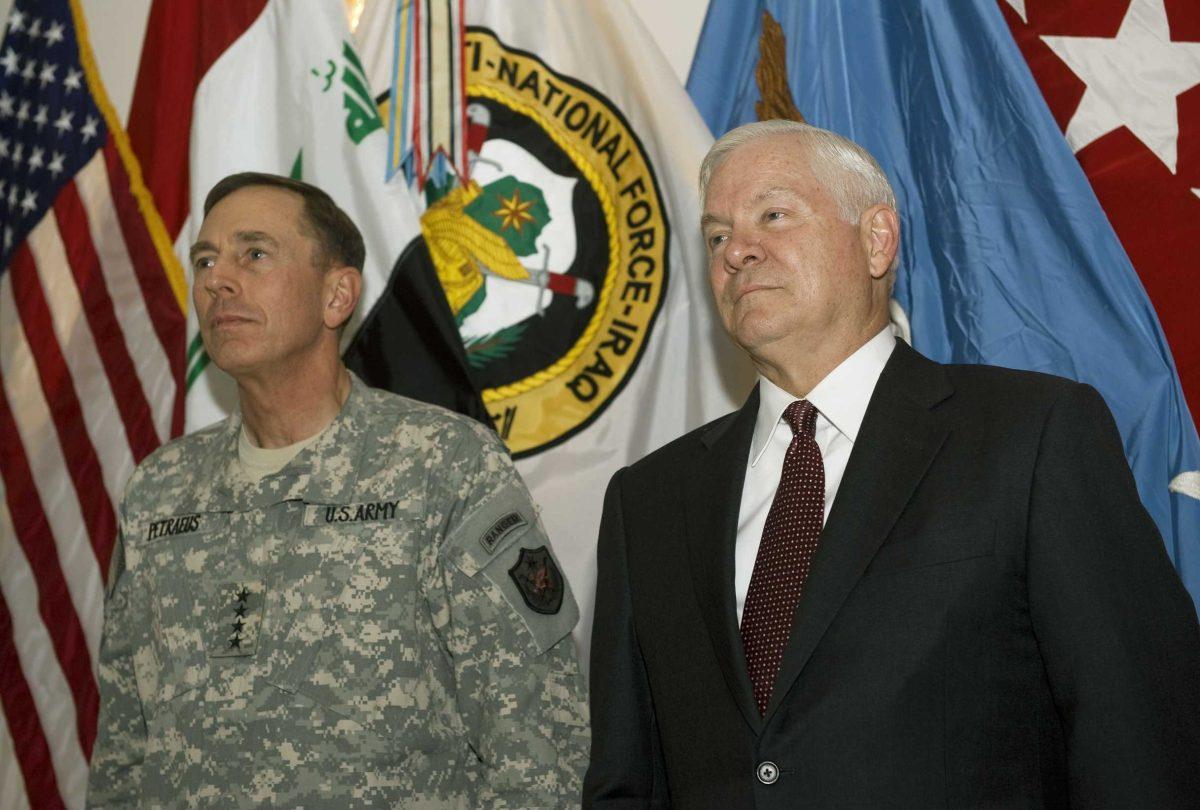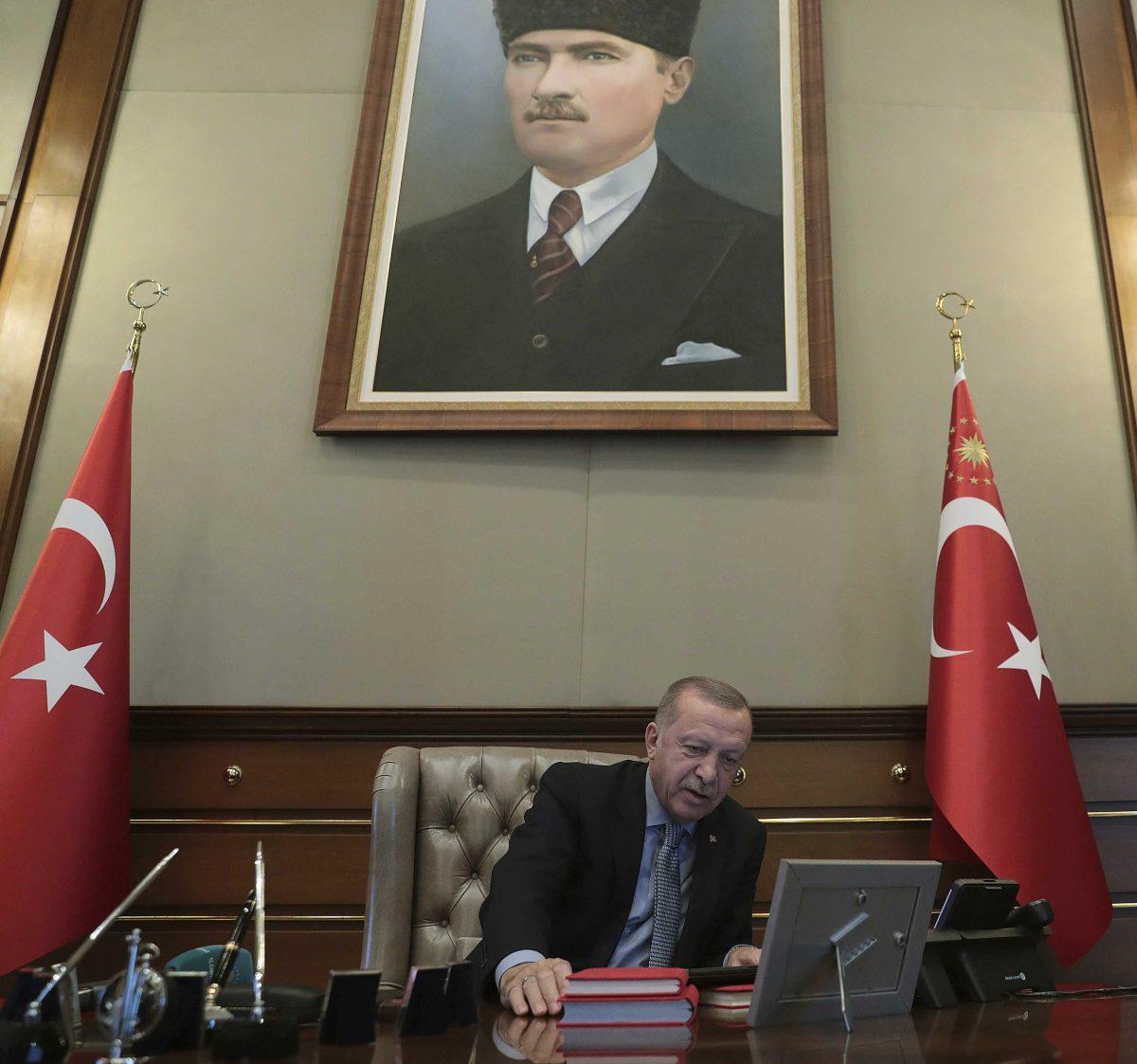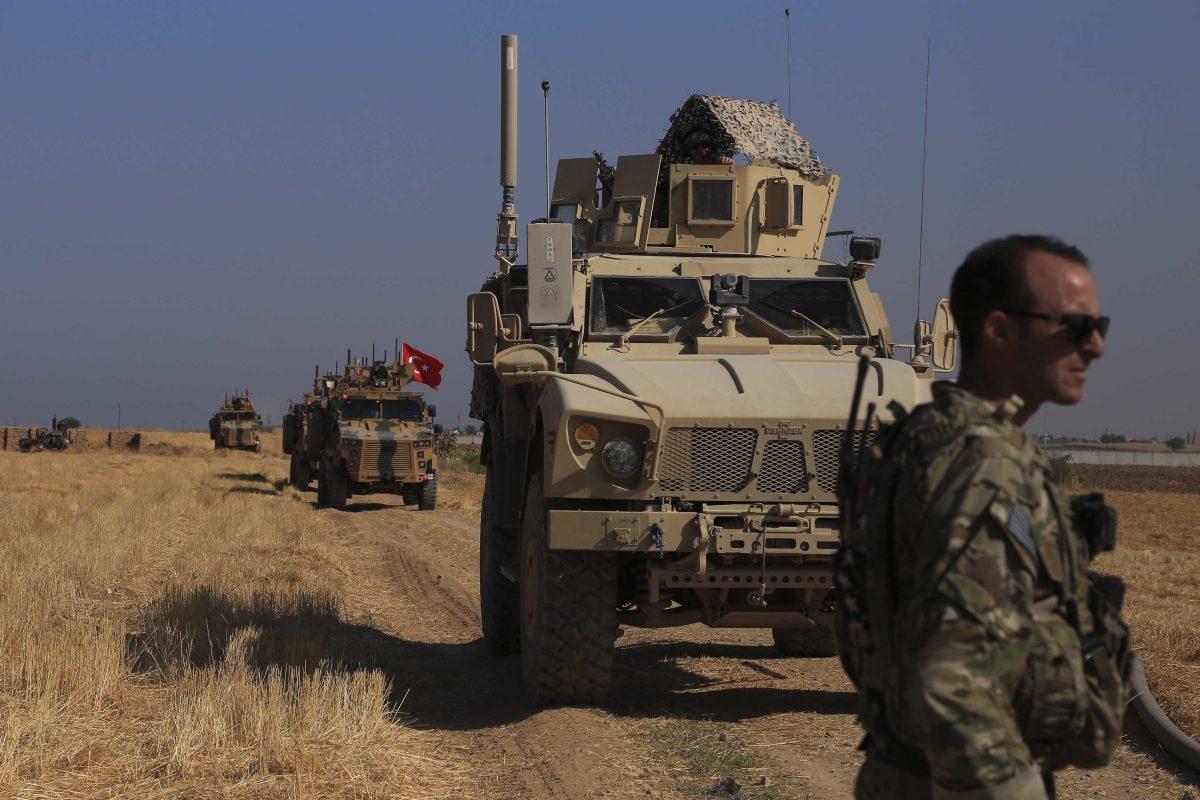BAGHDAD (AP) — Defense Secretary Robert Gates said Monday he foresees a shrinking U.S. combat role in Iraq in coming months, while the No. 2 U.S. commander here cautioned that it would be a mistake to push the U.S.-trained Iraqi army and police into a leading security role too soon.”I’m not sure that pushing them forward is the right thing that we want to do. We tried that once before and found that that didn’t work,” Lt. Gen. Lloyd Austin told reporters, referring to the pre-2007 U.S. strategy, which focused on handing off security responsibility to the Iraqis fast while reducing the U.S. presence. That approach faltered, leaving Iraq on the brink of all-out civil war before President Bush switched strategies and put Gen. David Petraeus in charge in Baghdad.Austin said key measures of insurgent violence today are about 80 percent lower than one year ago.Petraeus is scheduled to hand off on Tuesday to his successor, Lt. Gen. Ray Odierno. Odierno, who served for 15 months as the No. 2 U.S. commander here before leaving last February, will be promoted to four-star rank at a separate ceremony prior to the formal change-of-command ceremony.Gates, who planned to preside at the change-of-command ceremony, told reporters traveling with him on an overnight flight from Washington that conditions have improved enough to permit a continuation of the process of handing off responsibility to the Iraqi security forces. Last week he told Congress that the war was now in the “endgame,” with U.S. forces drawing back to a secondary role.A suicide bomber blew herself up Monday among police officers who were celebrating the release of a comrade from U.S. custody, killing at least 22 people, Iraqi officials said. The attack took place in Diyala, a province northeast of Baghdad. Separate bombings in Iraq killed 13 other people.Although no additional U.S. combat brigades are to withdraw from Iraq this year, under a plan announced by Bush last week, Gates told reporters that he expects the U.S. combat role to keep shrinking. Pentagon commanders say they need more forces in Afghanistan, where fighting has worsened.”We are clearly in a mission transition,” he said.On Monday, the Pentagon formally announced that a Marine Air-Ground task force, including the 3rd Battalion, 8th Marine Regiment, will go to Afghanistan in November to replace the two Marine units there now. The battalion is based at Camp Lejeune, N.C., and will be supplemented with aviation, headquarters and logistics units from across the Marine Corps.The two Marine units now in Afghanistan total nearly 3,900 Marines.The Army’s 3rd Brigade, 10th Mountain Division — based at Fort Drum, N.Y., and numbering up to 3,700 soldiers — will head to Afghanistan in January, rather than to Iraq as initially planned.U.S. troops in Iraq will increasingly play a backup role, Gates said, as Iraqi security forces take on more of the responsibility for fighting an insurgency that has lost much of its power and influence over the past year.”The areas in which we are seriously engaged (in fighting) will, I think, continue to narrow,” Gates said.Austin’s remarks in a separate interview with U.S. reporters on Monday in no way contradicted Gates. But the general put greater emphasis on caution, saying that although security is better, it remains fragile.”You can rush to failure here if you’re not careful,” Austin said. “You really have to make sure that all the elements are in place to guarantee sustainable security — the army, the police, the border enforcement agencies.”The biggest uncertainty at the moment, Austin said, is the central government’s inability thus far to pass the legislation needed to hold provincial elections across the country before the end of the year.Later Monday, Gates met privately with Iraqi Prime Minister Nouri al-Maliki and other senior government officials. Before that he sat before an array of Iraqi military and local government leaders from the Rashid district of south Baghdad and heard assurances that they are cooperating to resettle citizens — both Shiites and Sunnis — who were displaced by the sectarian violence. They also pledged to work together on other thorny issues.”I’m very encouraged by what I’ve heard,” Gates said when they had finished.Al-Maliki’s office said that he told Gates that Iraqi security forces are making progress against “terrorists and outlaws.”At a farewell dinner for Petraeus, Gates presented the general with the Defense Distinguished Service Medal and gave Ryan Crocker, the U.S. ambassador to Iraq, the Pentagon’s highest award for a civilian, the Medal for Distinguished Civilian Service. Gates praised them for working effectively together.”Under your leadership,” he told the two, “Iraq has been utterly transformed.”—-Contact The Daily Reveille’s news staff at [email protected]
Gates foresees narrower US combat role in Iraq
By Robert Burns
The Associated Press
The Associated Press
September 15, 2008
PAUL J. RICHARDS / The Associated Press
U.S. Commanding General of Multinational Forces in Iraq, David Petraeus, left, and U.S. Secretary of Defense Robert Gates stand during a ceremony in which Gates recognized Petraeus and US Ambassador Ryan Crocker for distinguished service Monday, Sept. 15, 2008 on the outskirts of Baghdad.








